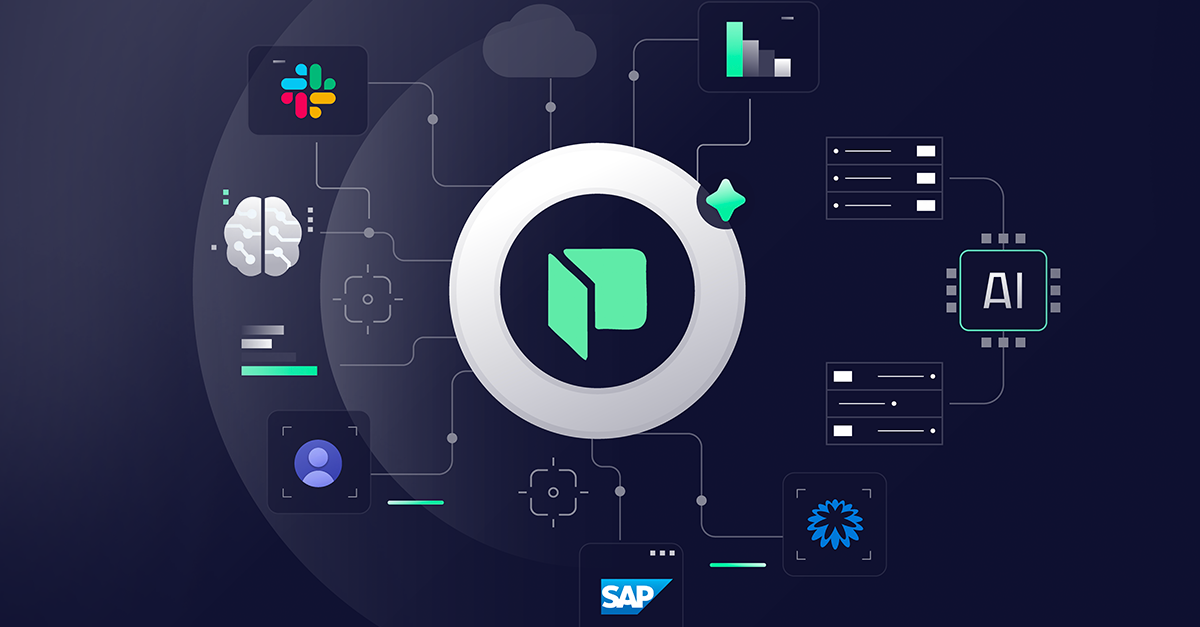
A key question on the mind of most business leaders today is: “How can I adapt my business to survive and even thrive in a post-COVID world?” Although answers vary, it seems that many are hoping that one technology in particular ends up solving their problems: automation.
According to analyst firm Forrester, in the months and years ahead, enterprises will invest in automation technology more than rehiring, because “the enterprise coverage and strategic value of automation” has so meaningfully increased.
Meanwhile, Arun Sundararajan, professor at NYU Stern School of Business, recently told Protocol that he believes the pandemic will spur a new tech paradigm centered specifically around automation tech.
There are many different kinds of automation technology, of course, but it’s in the context of automation software that Sundararajan’s prediction appears most prescient. Last month, for example, Microsoft acquired robotic process automation platform Softomotive. Microsoft hopes the platform’s automated, low-code technology will empower employees with a number of new capabilities — including the ability to foster “citizen developers” who can affect “overall innovation,” to borrow the words of Softomotive CEO and co-founder Marios Stavropoulos.
There are more examples of this kind of enthusiastic investment. And thinking about what will come of it all is, in a sense, really exciting.
But as a founder who has spent a lot of time figuring out how to make automation work, what I find most interesting is the scope of the ambition. It mirrors that of the business leaders I’ve spoken with who hope the automation software they invest in will not only increase efficiency by automating repeatable tasks — usually, as many as possible — but that it will optimize their operations holistically. That is as if automation software on its own were a silver bullet, singularly capable of fixing every challenge your organization is facing — from bottlenecks to broken workflows to hulking, overburdened budgets.
To affect organizational change, automation software must be implemented strategically and as just one piece of a larger operational puzzle. Credence must be lent to the impact that automation technology might have on your operational infrastructure — the small ecosystem of people, processes and systems that drive production and innovation inside companies. For automation technology to have a holistic impact inside your organization, the way you think about implementing it must also be holistic in scope.
In fact, there’s serious risk in implementing automation flippantly, or haphazardly. Automation used without internal governance can lead to data corruption and delays in addressing things like support issues. Automation that is too focused at the task-level — implemented with a mind for automating just one component of a pre-existing process — can limit the potential impact of your automation efforts. It can also end up shifting bottlenecks to another area of the process in question. And in doing so, it can encumber the very employees that it should, ideally, augment and empower.
The good news is, if you are strategic and considerate in the way you think about implementing something like a low-code automation platform, the benefits can indeed be game-changing.
There are two key things to keep in mind:
The answer, 100 percent of the time, should involve operations teams.
Operations teams — including sales operations, revenue operations, legal operations, etc. — are the cornerstone of your organization. They’re the ones who manage the intersection of people, systems and processes that power companies. As such, they’re uniquely equipped with the insight and understanding required of using automation software to successfully augment those people, processes and systems.
If your organization were a football team, your operations department would consist of the offensive and defensive coordinators, and perhaps even the general manager. They’re the folks who determine how employees interact with each other and spend their time. Automating elements of your operational infrastructure amounts to changing your company’s playbook. That’s a responsibility you should only endow to team members who have a thorough understanding of how the individual components of your company work in tandem, as well as how one change inevitably begets others.
People-centric workflows — requiring skills like empathy, decision-making, etc. — make up a huge percentage of business processes. As such, the impact of automation solutions must be measured in accordance with how meaningfully they optimize the people your workflows guide and inform.
To this end, automation solutions must be capable of not only automating individual tasks, but of adapting and catering to the varied needs and general unpredictability of employees. They should optimize your company’s workflows to save your employees the most time, allowing them to focus most purposefully on the things they’re best at. (In addition to equipping your people with everything they need to be able to respond quickly and impactfully come disruptions to their day-to-day routines.)
In the future, the real technological game changers for enterprises will be Adaptive Business Operations (ABO) platforms that enable operations teams to create human-centric processes that do just that. Automation platforms that can adapt to dynamic processes and keep humans in the loop — those that include human input for decision points and dynamic processes — in particular are what the world really needs to see, and they’re what we should really be investing in.
There’s no doubt that automation technology will play a massive role in designing the future of work — both in the granular sense of how employees spend their time and in the way business leaders go about growing and scaling their operations in a more big-picture way.
Employees, customers and business leaders have a chance to meaningfully redesign the way we work, and what we prioritize and appreciate inside our organizations. In these redesign efforts, automation software has an important role to play.
But on its own, especially if it’s implemented hastily, automation software possesses limited value. Moreover, the answer to your organization’s woes — those inspired by COVID-19 and those that were around before the pandemic — is not simply to automate every task you can.
In fact, what I recommend to my team and to the business owners I work with every day is to take a step back and ask yourself what tasks you should automate, rather than those you could automate. Once you make that determination — and once you have a solid understanding of why automating a given process or task makes sense — you can go about ensuring you do it right.
Either way, whether you’re at the outset of new efforts to implement automation-augmented technology, or just shopping around for a platform designed to empower your operations personnel, this kind of discernment is crucial. It will be what allows you to deliver — among other things — on automation’s initial promise: To liberate people from menial work, augment them to help them become more efficient and happy, and, in the process, optimize your organization as a whole.

